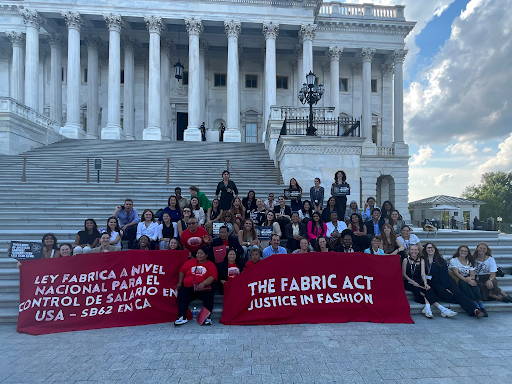By conscious style consultant JeLisa Marshall, Community Organizer for ReMake Seattle and a dear friend of Cura.
On the surface, fashion - with all of its glitz and glamour - may seem frivolous and fun. However, a deeper view will reveal a less exciting yet important truth. The industry is full of incidences of exploitation that constantly put human lives at risk.
The Rana Plaza collapse is a major example. On April 24, 2013, a factory in Bangladesh collapsed due to structural issues that were ignored despite callouts and concerns from garment workers. Nearly 1,200 workers lost their lives. Shortly after, the Accord and Rana Plaza Agreement were established to provide safety measures and ensure the families affected were compensated for their losses. Today, ten years later, the industry still needs to do more.
The average garment worker in Bangladesh earns the equivalent of $74 USD per month, which is not nearly enough for such high-risk and high-value work. It should be five times that amount to account for the cost of living in the country. Due to a lack of legally-binding policies for worker protection, brands, designers and retailers alike can choose to self-regulate or self-report on building and safety incidents which often obscures systemic issues such as pay inequity and unfair treatment leaving them largely unaddressed.
These systemic issues not only exist in high-volume, garment-producing countries like Bangladesh, but in the United States as well. Manufacturing practices like the piece pay rate are used to prioritize business profits over the safety and wellbeing of garment workers. Just two years ago, in 2021, business documents showed some garment workers in California were paid under $3 per hour.
As a result, activists rallied together to urge the government to set the state minimum wage as the pay floor. This led to the formation of Senate Bill 62 and after collecting signatures from over 100 brands and calling many government officials, it passed. In 2022, California became the first state to require the legal minimum wage be paid to garment workers.

